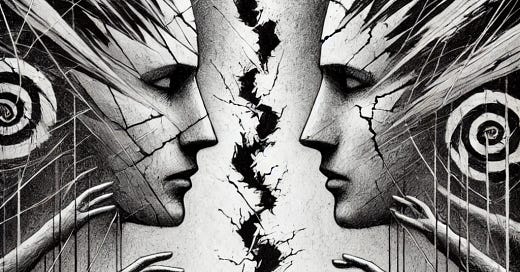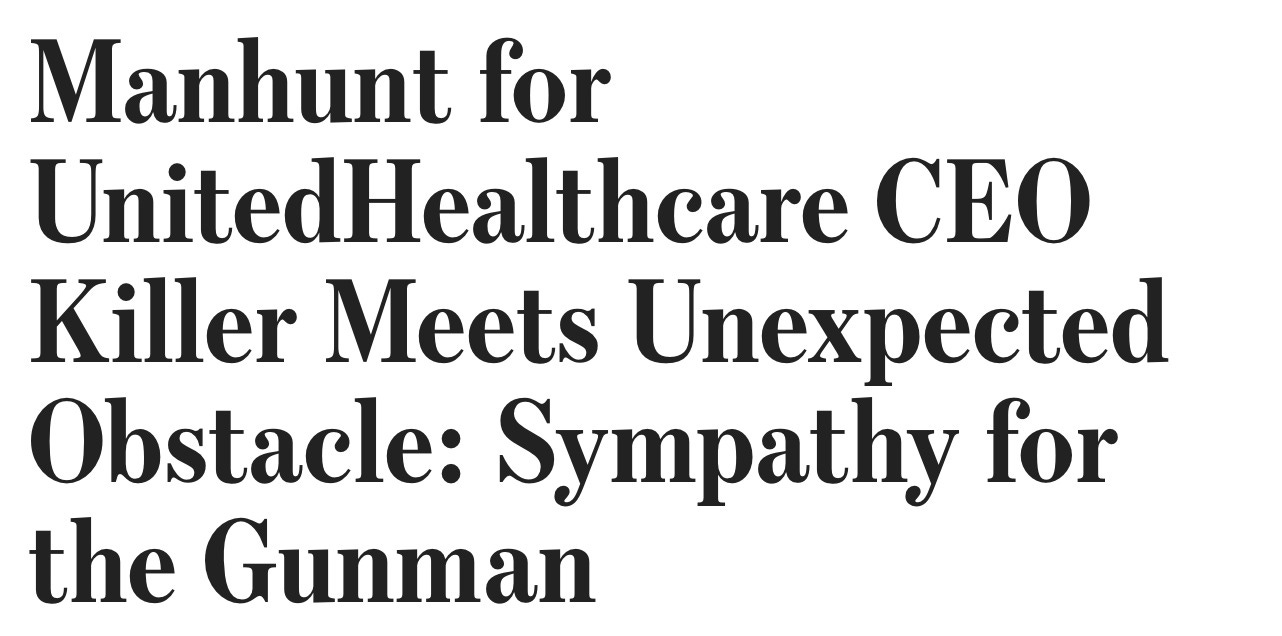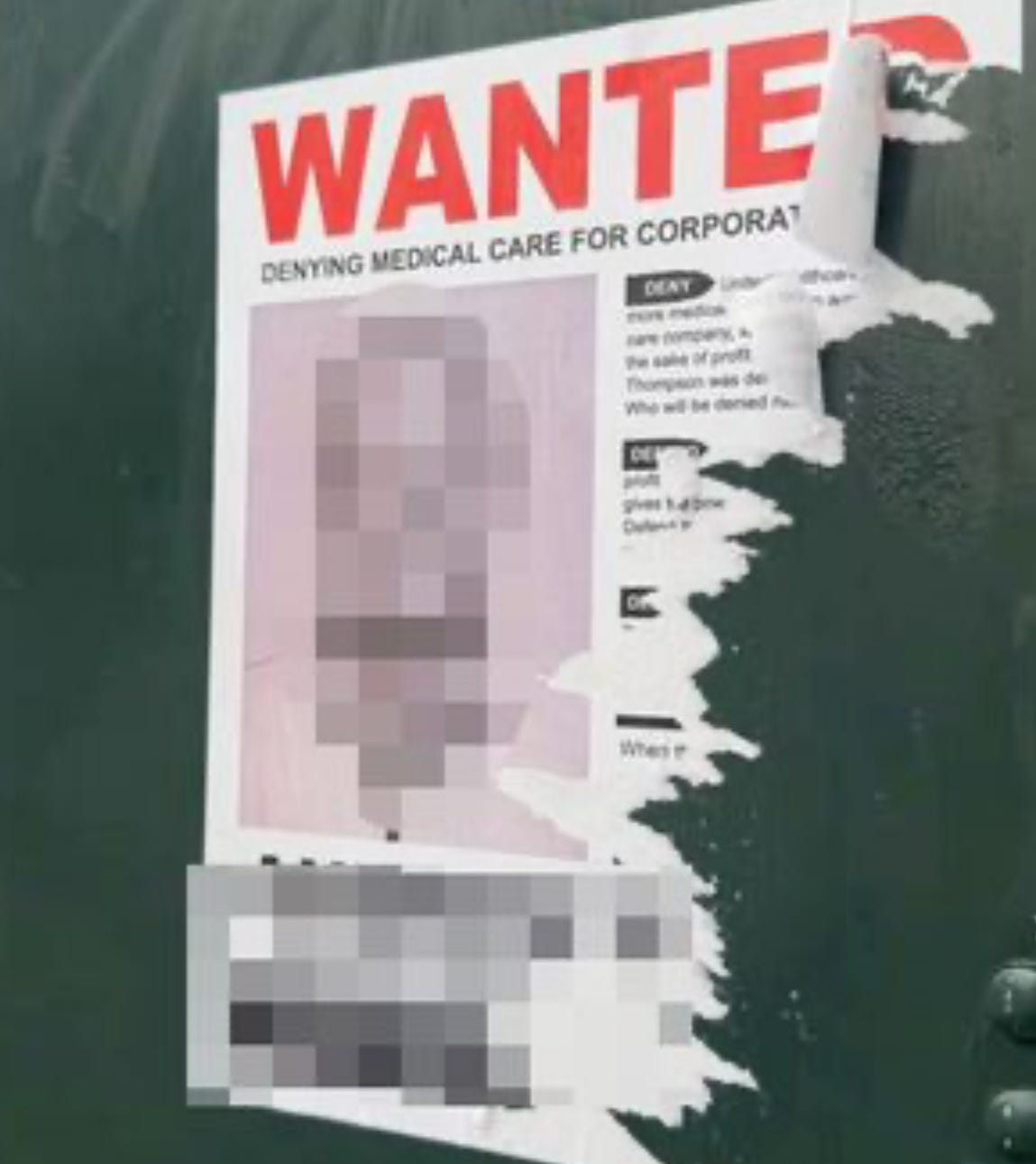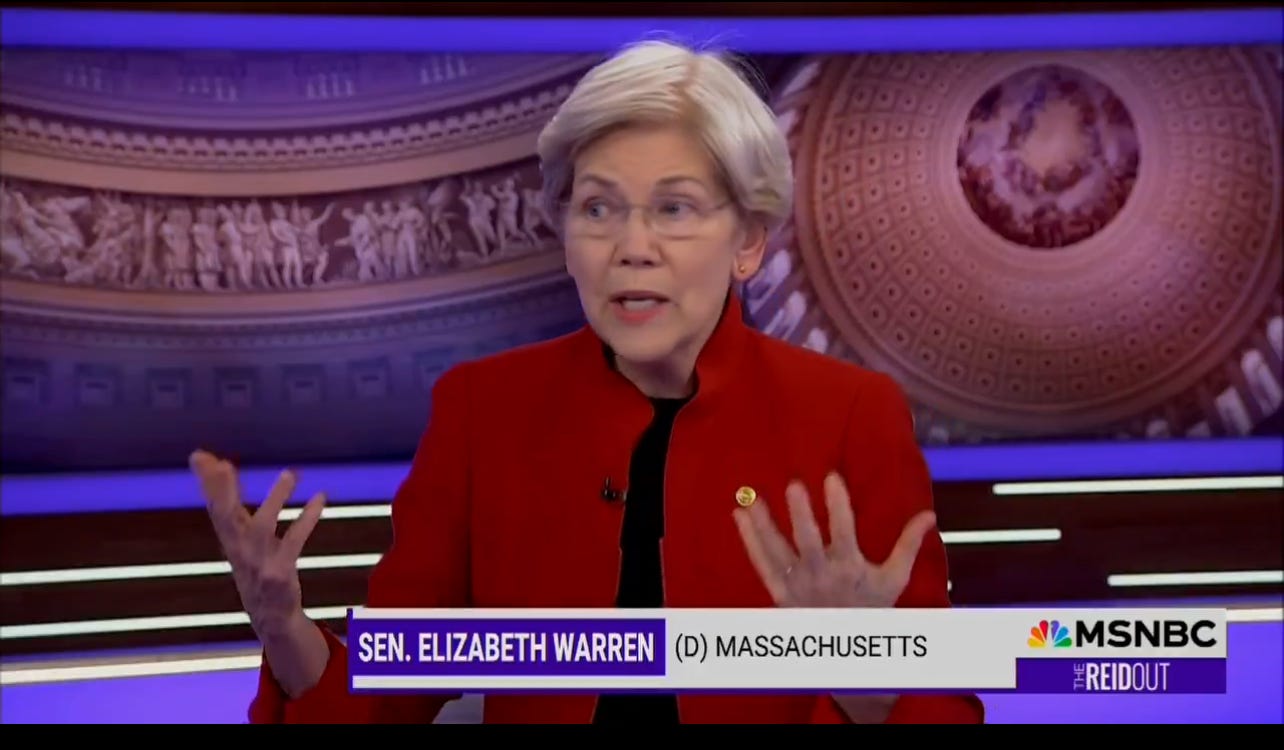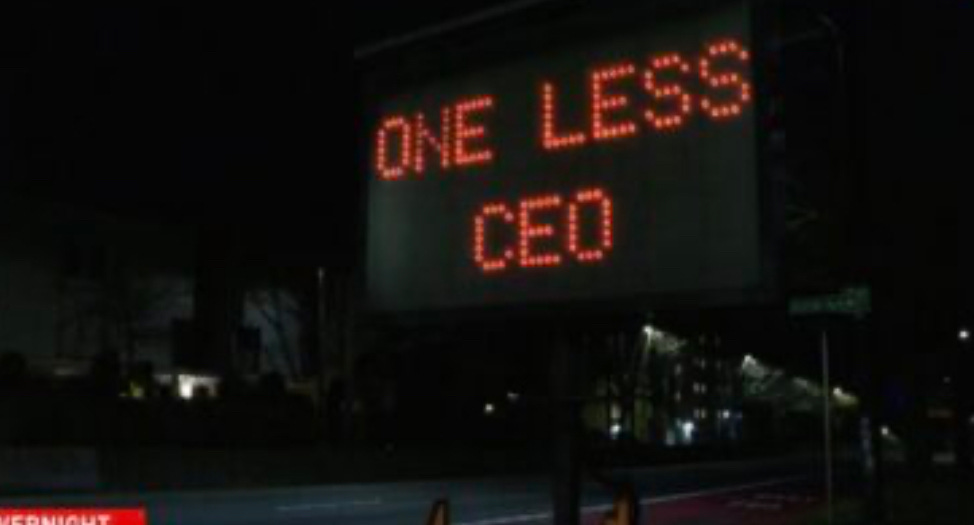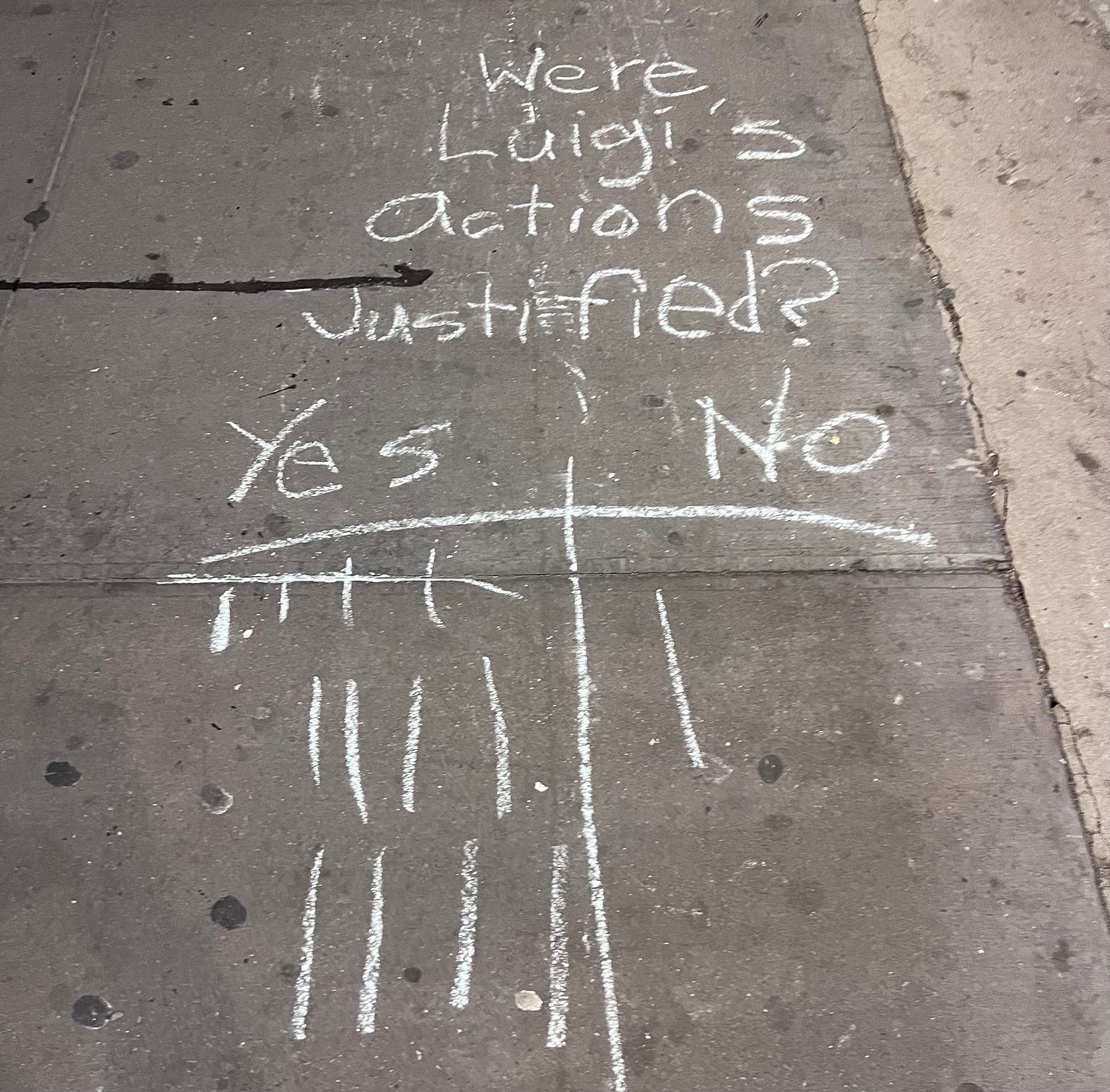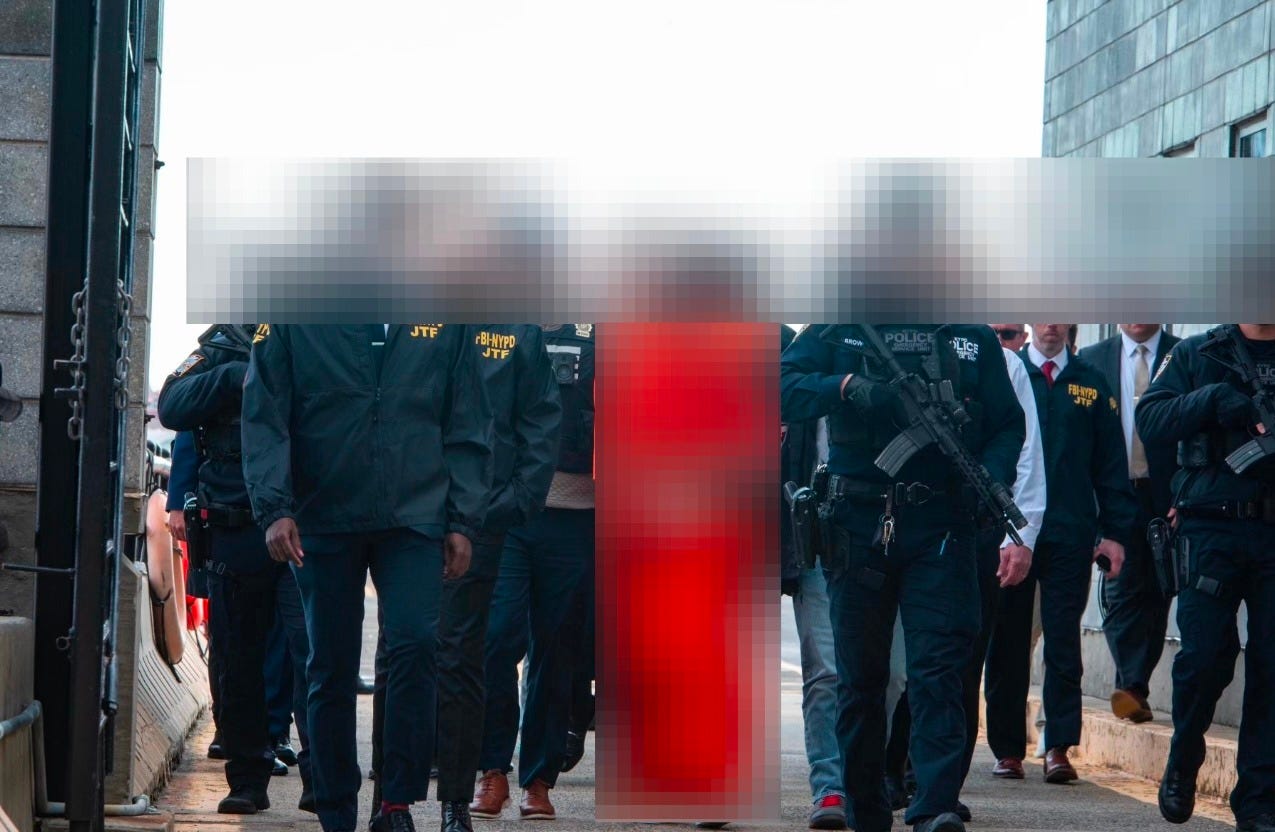Do you think America loves violence? We glorify, romanticize, and use it daily in small and monumental ways. I've read that 90% of movies, 68% of video games, and 60% of TV shows have some form of violence. It is embedded in our culture beyond our screens, from bar brawls to drone strikes. Love it? Maybe. We sure are accustomed to it. Yet, every time there's a high-profile murder or celebrity beating caught on tape, there is handwringing. The media waxes poetic about the sanctity of life. Commentators lament the erosion of moral values. This sanctimonious routine irritates me. It reeks of hypocrisy. It is childish to be so naive.
We cheer for the lone gunman in a white hat who rides into town to set things right. It's in our movies, our songs, and our history books. The American Revolution was a violent revolt. Our national anthem doesn't celebrate peace; it celebrates surviving war. "Bombs bursting in air."
The lie we tell ourselves is that we're better than this, that violence and tolerance of suffering are an aberration. They aren't. They are who we are. That is the complex part. There are many times, both as individuals and as a nation, when acts of violence are the right course of action—just, moral—the right answer.
Our next president, to cheers in person and plenty of online praise, said that 'one really violent day' to tackle crime, 'one rough hour, and I mean really rough' would solve the problem 'immediately.' It wouldn't. It doesn't. It's been tried. We've been pretty rough, at home and overseas, and failed to win. Mass sweeps and mass action hurt the innocent, those who are also appalled by the very crimes these actions seek to end. Hurting the very people you hope to help is not success.
It's another expression of a long-standing belief: we solve problems with force. It is often the answer we employ.
But vigilante justice doesn't fix the system, make healthcare affordable, or make subways safer. It only reinforces chaos. Vigilante justice is cathartic for many but destructive for all. It undermines democracy, where collective action—slow and painful as it may be—is the only actual path to something better.
Look at healthcare in America. It isn't broken by accident. It is a machine designed to make money and maximize shareholder value. It treats health like a commodity. People suffer because of it. That's by design. Murdering one CEO won't change that.
A healthcare executive is killed, and some quietly nod in understanding. Others openly celebrate online, some anonymously, others not even that. Consider the headlines. "Sympathy for the Gunman"
Anger at those who called the cops when they thought they'd seen the suspect. A person willing to shoot people in the back, on the street.
Then, the "I wouldn't do it, but I get it moments."
Then, the appeal to escalation with "wanted" posters featuring other CEOs
And ironically, or perhaps without a hint of it at all, capitalism or opportunists enter the scene.
These reactions stem from the fact that many Americans don't trust the system to fix itself. They admire the man who "takes care of it." But something else is needed.
A vital reminder and caveat in these digital days! All or much of the online banter could be fake, shit-stirring by a few, or even a foreign power. Divide and conquer isn't a new idea, and having us argue over events like this from such staggeringly different perspectives is a fine example of psychological warfare. But the point? Doubt of the en-masse digital diatribe is wise.
That said, back to things we know are true. Regarding the murder, Senator Bernie Sanders offered this, "What you have seen rising up is people's anger at a health insurance industry which denies people the health care that they desperately need while they make billions and billions of dollars in profit."
Senator Elizabeth Warren said, "Violence is never the answer… but you can only push people so far, and then they start to take matters into their own hands." Perhaps we are in for a bipartisan day of rage. "Violence is never the answer," worthless rhetoric. Whether it ends up being the right or wrong answer. It is often the answer.
We should all mourn cold-blooded murder. We should be sickened. We cannot allow such violence to be celebrated or normalized. At the very least, we shouldn't celebrate that we've normalized it. People with the public's attention, what I'd call voices of value, whether you value them or not, should speak up. It works to reduce what we might call "political violence." A thing we seem to be turning to, from the shooting at a congressional baseball practice to the attack of then-house Speaker Pelosi's husband, the rage is there. As is the support.
But the outrage in response should go further. It should fuel action. It should interrogate the culture that produces such acts. Why aren't we all sickened?
Online, the theme among some, particularly younger Americans, is an expression on a spectrum, but there is a lot of understanding and a fair bit of joy over the murder of a CEO. It's probably something we should expect, given they have grown up in a world that shrugs when a school shooting occurs. We have normalized gun violence, and our reactions are in kind. We have also created a path through adulthood, unlike the journey of previous generations. The narratives bombard them, "It was better before; you missed out," and "Want a house, maybe skip the avocado toast." It is not the fault of the latte that young Americans delay major milestones like children and purchasing a home.
It seems pretty plausible, given that we have folks telling them avocado toast is why they can't afford a house, and school shooting drills are routine like past generations had fire drills. People dying as a result of gunfire isn't shocking, and nothing about their upbringing, from a leadership point of view, has done anything but encourage them to do much more than deal with it. "Keep Calm and Carry On."
A poll on the murder of Unitedhealthcare's CEO found that 41% of young Americans, aged 18-29, think the murder is somewhat or completely acceptable. One news outlet called this finding "staggering" and "stunning" within the first 20 words of its coverage. I would be ashamed to seem surprised or stunned by those figures. It is, more than anything, a depressing reality. But the system has failed them. They hear it from all quarters. They feel it. Even those who don't like avocado toast or lattes.
We wouldn't tolerate allowing our fellow citizens to accumulate $220 billion in medical debt if we cared about health and life; this wouldn't be so.
Healthcare is a mess, and it undoubtedly ends lives prematurely by making care harder to get. There's language doing its work; "ends lives prematurely" is a hell of a way to say kills. But as a violent man once said, "One death is a tragedy, a million deaths a statistic."
Real change demands we stop thinking a day of rage, the guillotine, or an assassin's bullet will do anything but lead to more futile acts of violence. The correct change in a complex and massive society demands patience, organization, and collective effort. Easy to say.
We have many movies and books about the battles fought to win World War II. The mundane and equally vital work of winning the peace and rebuilding Japan and Germany, as well as many other places, not so much. None of that is as thrilling as a shootout at high noon. But it's the only thing that works. It is the way lasting change comes to be the reality of our lives.
But society faces a profound challenge in a world that seems to think everything should be entertaining.
I must admit—I fear. In another piece, I wrote, "Far too many of us see little or no return on our substantial investment. The worst of us are rewarded. The system we have in place is grinding people down and destroying the planet as we propel into what—techno feudalism."
Perhaps we are at the breaking point. Faith or trust in leadership, the system, to get it right is in short supply. Without that faith, extremes are viewed as reasonable. The devil you don't know becomes appealing. It is obvious that some among us are there. Many others are close by.
News that the man accused of murdering the UnitedHealthcare CEO has been charged as a terrorist concerns me. Conventionally, it sends a message that this is a depraved act. But I fear convention is endangered, and some will hear a different message, one that will only fuel the rage.
I'm no legal eagle, but in reading about the terrorism charge, it seems the allegation is his actions are being viewed as an attempt to intimidate or coerce those in the insurance industry and possibly to influence government policy on insurance. As the poll suggests, many think that is needed, even with violence.
The "legal pidgeon" I am does wonder about the promise to pardon those convicted for their actions on January 6th at the Capitol. Congress has passed a statute defining domestic terrorism as criminal acts that endanger human life, have no foreign connection, and seem intended "to influence the policy of a government by intimidation or coercion."
I'm reminded of the quote, "One man's terrorist is another man's freedom fighter."
This level of division can end things.
We are here; this reality will play out for a generation or more. A nation's personality needs to grow and take its own course. Good leaders can help guide it to a good path. Public figures can turn people to a more effective and civilized path. As an optimist or actually hopeful person, I believe good leaders can alleviate the sense of injustice. How? By actually attacking the unjust.
I hope we make it to see who we are when we grow up.

